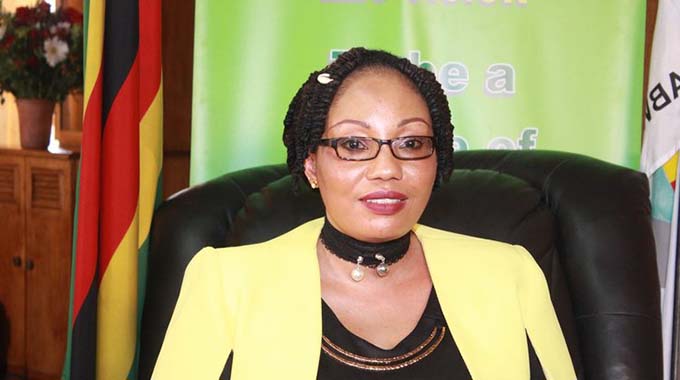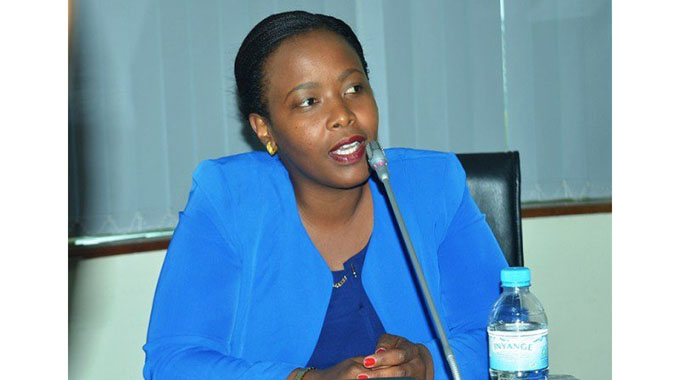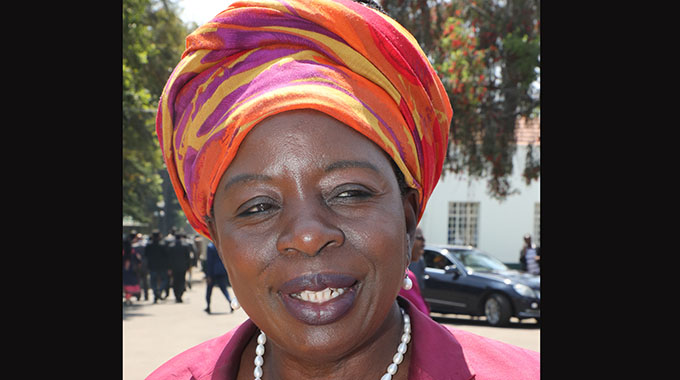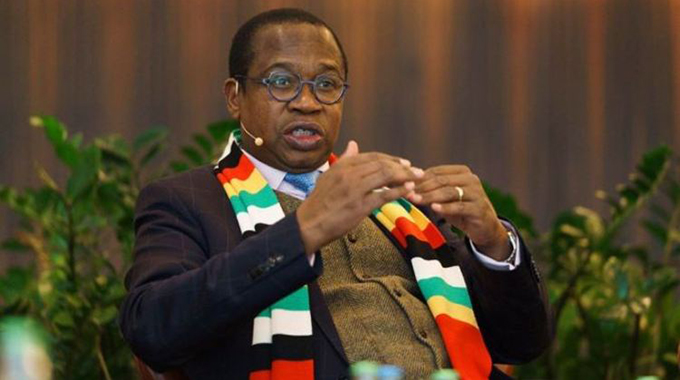Gender equality: Parastatals treating women as unequals?

Ruth Butaumocho Managing Editor
Zimbabwe prides itself as one of the leading countries in Southern Africa committed to ensuring gender equality across all sectors of society, the economy and in politics.
The level of its commitment is reflected by a litany of policies and laws that create and promote equal opportunities for women and men in the social, political and economic landscape.
Already, the country boasts of well-crafted legal statues supported by our Constitution that speak to the need for gender equality. Even the political will displayed by the Second Republic is clearly shown in the gradual progression of women, where they are now at par with their male colleagues in various spaces, particularly in Government.
To date, the country boasts of several women who now hold powerful positions, an affirmation of the Government’s commitment to level the play-field for competent men and women, who can measure up to the task at hand.
Several women of integrity have passed the fiduciary expectations and have earned their stripes as competent and able individuals. Who can afford to forget how Zimbabwe Electoral Commission chairperson, Justice Priscilla Chigumba held her own during the July 2018 high-octane elections?
Despite the barrage of criticism and the brickbats that were thrown from all angles, Justice Chigumba executed her mandate, while holding her head high at a time that could have seen many collapsing into a deluge of tears.
Even our judiciary is already illuminated with highly flying female eagles, who have proven to be competent.
History was also made when Justice Elizabeth Chiedza Gwaunza, the second most senior judicial officer in Zimbabwe, was elected to become the country’s Deputy Chief Justice.
She becomes the first woman to hold such an office in the history of Zimbabwe, and now deputises Chief Justice Luke Malaba. Prior to her latest appointment, Justice Gwaunza was a judge of the Supreme Court and Constitutional Court.

Justice Gwaunza
The appointment of these individuals to their current portfolios was meritocratic. Such strides in pursuit of gender equality cannot be wished away nor be dismissed as tokenism because the elevations are part of a coterie of Government measures in place to include women in governance across as enshrined in the Constitution.
Suffice to say the gender equality matrix and the call by President Mnangagwa for equal opportunities call seems to have been lost on parastatals, who have been affront towards women empowerment, judging by the low representation of women sitting on their boards and holding senior management positions.
The Zimbabwe Gender Commission has since expressed concerned over the low representation of women in boards of parastatals and senior management positions after a study it carried out revealed a serious gender imbalance in the number of women being appointed in both these institutions and in senior management levels.
In its report the Gender Commission revealed that “It was noted during collation of the data provided then (2017) that 68 percent of senior management staff in all Government ministries were men, while women were 32 percent.
“The survey also established that in parastatals, 79 percent of chief executive officers were men, while women constituted only 21 percent. In managerial positions in parastatals, men constituted 74 percent, while women were 26 percent.
“The heavily skewed gender composition of board members under various ministries then were no different as men constituted 65 percent, while women only made up 35 percent.
“The survey, therefore, revealed a gender imbalanced occupational structure characterised by both vertical and horizontal segregation. The structure resulted in fewer women in decision making compared to men.”
Such revelations coupled by several recent board appointments make a mockery of women’s efforts to play a part in national development, and dismisses the general female populace as an “incapacitated lot”, who are not able to engage intelligently at forums of that nature.
In some of the recently appointed boards, there is only one woman, leaving many wondering if there are no capable women who can be considered for such appointments.
Was any due diligence done to look for suitable female candidates to sit on those boards? Is there a dearth of expertise, skills and ingenuity from women?
We believe there are a quite a number of aspiring female board members who have since deposited their Curriculum Vitae with the Office of the President’s Corporate Governance Unit, which is implementing the public entities Corporate Governance Act (Chapter 10:3) for maintenance and comprehensive directory or database of potential board members that are suitably qualified for appointment as directors.
Like any other institution, the nation is convinced that parastatals have a mandate to carry forward the nation’s vision by ensuring gender balance in all its structures as clearly articulated in the Constitution.
With boards being important structures of an organisation, where strategic decisions are made, governance applied and risk overseen, it is therefore imperative that they should be made up of competent high calibre individuals who offer a mix of skills, experience and varying backgrounds.
Given the long record of women achieving the highest qualifications and leadership positions in many walks of life, it should not be a point of conjecture on whether women should be included in boards or not.
Women have shown that they are capable and there are several advantages attached to the inclusion of women in governance, and boards are not an exception. Diverse groups of people bring a greater variety of experience and different views to the decision-making process, which in turn make better decisions than a process, where there are no divergent views.
Due to the widespread and the seemingly never-ending spectre of scandals that often characterise operations of several organisations, due diligence cannot be left in the hands of one “sex”, while turning a blind eye to valuable contribution to a huge demographic.
There is no doubt that gender diversity on boards helps to ensure that the entire consumer base is represented, and that can never be far from the truth for a nation like ours, where 52 percent of the population is made up of women. Aspirations of such a huge percentage of the populace cannot be wished away and therefore needs to be represented.
Of course, some sections of society often argue that the inclusion of women might not translate to representation of the female population in terms of aspirations. However, that should not the basis of shrinking women’s spaces in public structures nor deriding their involvement in governance issues.
The call for application for gender parity principle should be embraced in totality by every Zimbabwean in line with the Government’s commitment for gender equality and gender equity.
Research that has been carried out at different platforms shows that heterogeneous groups produce higher quality decisions than homogeneous groups on complex tasks and generate more innovative solutions than homogeneous groups through cognitive conflict. The research has proved to be true, because organisations and even countries that embrace gender diversity in governance structures, report positive results. It is because of these positive spin-offs that several Nordic and African countries are upping up their numbers on gender representation.
In Norway, legislation is mandating companies to appoint women to their corporate boards to achieve 40 percent females within the next three years, and Sweden has implemented similar legislation with a target of 25 percent female representation.
Touted as the only country in Africa with the highest number of women in all its governance structures, particularly its Parliament, Rwanda stands out as the model of gender equality, whose results are beginning to pay off as attested by the country’s economic development in the last decade.
Many will remember how a young, but bold and assertive female Rwandese governance expert, Ms Claire Akamanzi last year, led a powerful business delegation to Zimbabwe to engage the nation on running effective governance systems.

Ms Akamanzi
Even the professional manner in which Ms Akamanzi conducted the meetings, never mind the confidence she exuded when discharging her duties, did not go unnoticed, who could not marvel at how lucky Rwandese were to have a sound economy and effective gender mainstreaming policies.
Even our neighbours across the Limpopo have grasped the concept of gender equality much faster than us.
South Africa is holding its head high in terms ensuring that gender equality becomes the main agenda on all its forums. Following its recent feat on gender quality by ensuring a 50 percent gender equality in its 28-member Parliament, it has managed to create equal spaces for women on most of its boards.
According to a recent Deloitte global survey, South Africa ranks fourth globally for the percentage of board chairs that are women at 23 percent against a global average of 4 percent. Such strides come from the goodwill shown by the corporate sector to acknowledge that women are indeed equals, and are not merely figurative, as the local private and public companies would want everyone to believe.
As a nation, we need a paradigm shift towards engendered leadership to ensure that women’s roles are not confined to the kitchen. We should not remain in the Stone Age era.
We must be careful not to bequeath the same archaic narrative to future generations — a narrative that belittles the role of women in national development — but instead train them to promote inclusivity and diversity.
Parastatals should be gently reminded that the role of women in decision-making is a key condition for women’s empowerment, in addition to being a basic human right of women to participate in decisions that affect their lives.







Comments